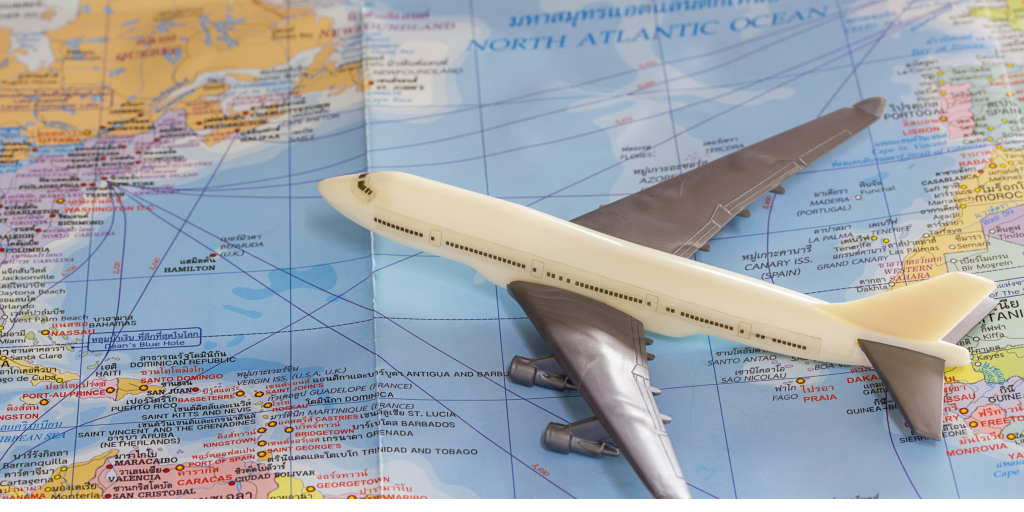
Planning an international trip can be exciting, but it often comes with the challenge of finding the best deals on flights. One of the most common questions travelers ask is, “How early should I book my international flight to get the best price?” While there’s no one-size-fits-all answer, understanding the factors that influence airline pricing can help you make an informed decision and potentially save hundreds of dollars on your next overseas adventure.
The Myth of the “Perfect” Booking Time
First, it’s important to dispel the myth that there’s a single perfect time to book international flights. Airline pricing is complex and dynamic, influenced by numerous factors such as destination, season, events, and market demand. However, certain patterns and general guidelines can help you navigate the booking process more effectively.
General Booking Windows for International Flights
While the best time to book international flights can vary, research suggests that booking within certain windows can often yield better prices:
- For trips to Europe: 120 to 160 days before departure
- For trips to Asia: 120 to 200 days before departure
- For trips to South America: 110 to 180 days before departure
- For trips to the Caribbean: 70 to 180 days before departure
- For trips to Africa or the Middle East: 160 to 215 days before departure
These windows are general guidelines and can fluctuate based on various factors. It’s always a good idea to start monitoring prices early and be ready to book when you see a good deal.
Factors Influencing Flight Prices
Understanding the factors that affect flight prices can help you make better booking decisions:
1. Seasonality
Peak travel seasons, such as summer in Europe or winter in the Caribbean, typically see higher prices. Booking flights for shoulder seasons (the periods between peak and off-peak seasons) can often result in better deals.
2. Day of the Week
Both the day you book and the day you fly can impact prices. Midweek flights (Tuesday and Wednesday) are often cheaper than weekend flights. Some studies suggest that booking on a Tuesday or Wednesday might yield slightly better prices, although this is not a hard and fast rule.
3. Major Events
Significant events at your destination, such as festivals, conferences, or sporting events, can drive up prices. Be aware of such events when planning your trip.
4. Oil Prices
Fluctuations in oil prices can affect airline operating costs, which may be reflected in ticket prices.
5. Competition
Routes with more competition among airlines often have better prices. Consider flying from or to major hubs where multiple airlines operate.
Strategies for Finding the Best Deals
Now that we understand the factors influencing prices, let’s explore some strategies to help you find the best deals:
1. Start Monitoring Early
Begin tracking prices for your desired route as early as possible. This will give you a sense of what constitutes a good deal for your specific trip.
2. Use Price Comparison Tools
Utilize websites and apps that allow you to compare prices across multiple airlines and dates. Some tools even offer price prediction features to help you decide whether to book now or wait.
3. Be Flexible with Dates
If possible, have some flexibility with your travel dates. Even a difference of a day or two can sometimes result in significant savings.
4. Consider Nearby Airports
Check prices for flights from or to nearby airports. Sometimes, a short drive or train ride can lead to substantial savings on your international flight.
5. Sign Up for Alerts
Many airlines and travel websites offer price alert services. Sign up to receive notifications when prices drop for your desired route.
6. Look for Package Deals
Sometimes, booking your flight as part of a package with accommodation can result in better overall pricing.
The “Sweet Spot” for Booking
While it’s beneficial to start monitoring prices early, the sweet spot for actually booking international flights is typically 2 to 8 months before departure. This window allows you to take advantage of early bird specials while avoiding the premium prices often associated with last-minute bookings.
It’s worth noting that the best time to book international flights can vary depending on your specific route and travel dates. For popular destinations during peak seasons, you might want to book on the earlier side of this window to ensure availability and potentially better prices.
The Last-Minute Gamble
While it’s generally advisable to book in advance, there are occasions when last-minute deals can be found. However, this approach is risky, especially for international travel where visa requirements and limited availability can be significant factors. Last-minute deals are more likely to be available for flexible travelers without specific destination requirements.
Conclusion
Booking international flights at the right time can lead to significant savings, but it requires a combination of research, flexibility, and sometimes a bit of luck. Start by understanding the general booking windows for your destination, but don’t rely solely on these guidelines. Monitor prices regularly, be aware of factors that could influence costs, and be prepared to book when you see a good deal.
Remember, while finding the lowest price is important, it shouldn’t be the only factor in your decision. Consider other aspects such as convenient flight times, reasonable layovers, and reliable airlines to ensure a comfortable and enjoyable travel experience.
By applying these strategies and staying informed about market trends, you’ll be well-equipped to find great deals on your international flights, allowing you to allocate more of your budget to experiences at your destination. Happy travels!








